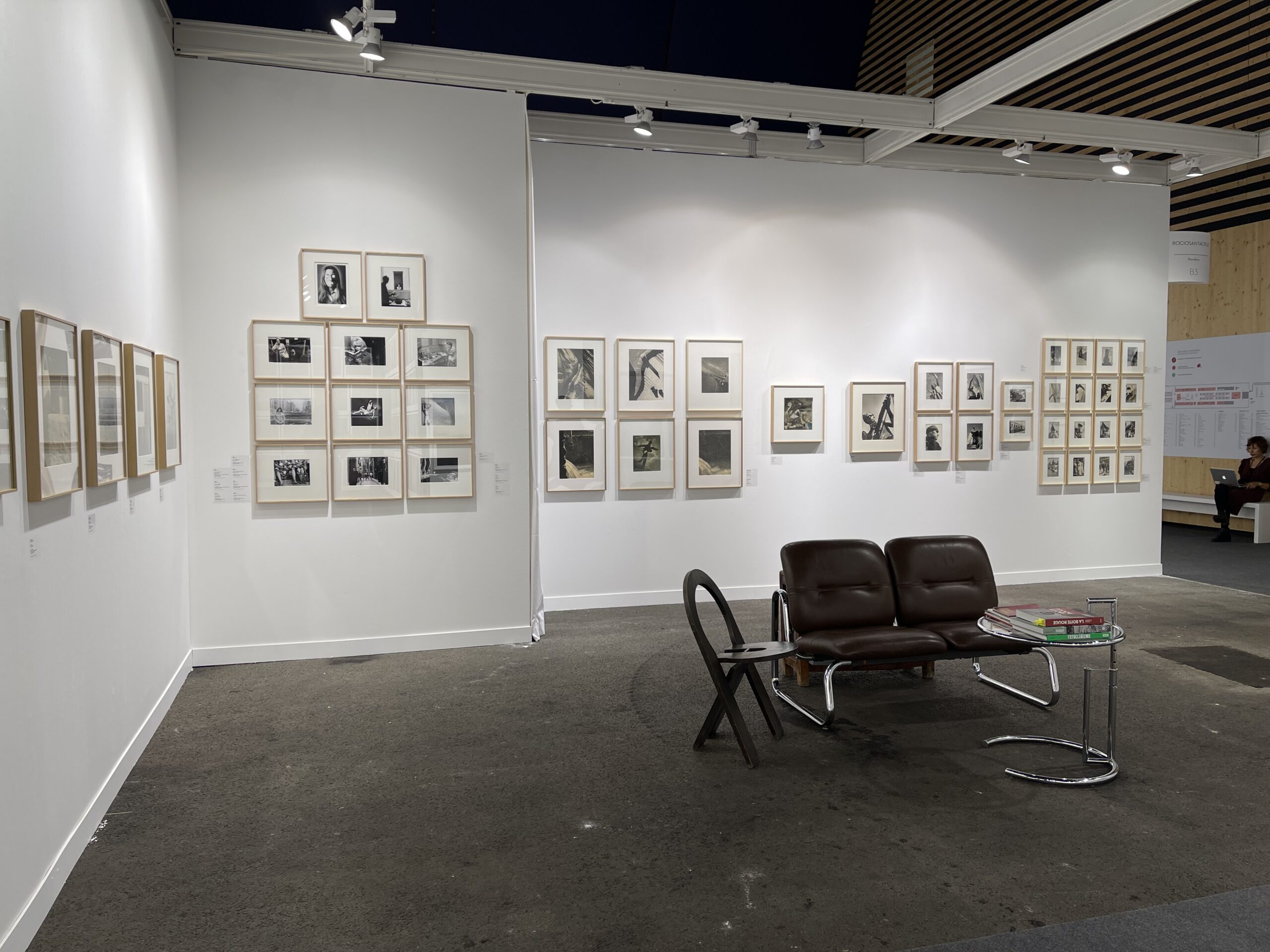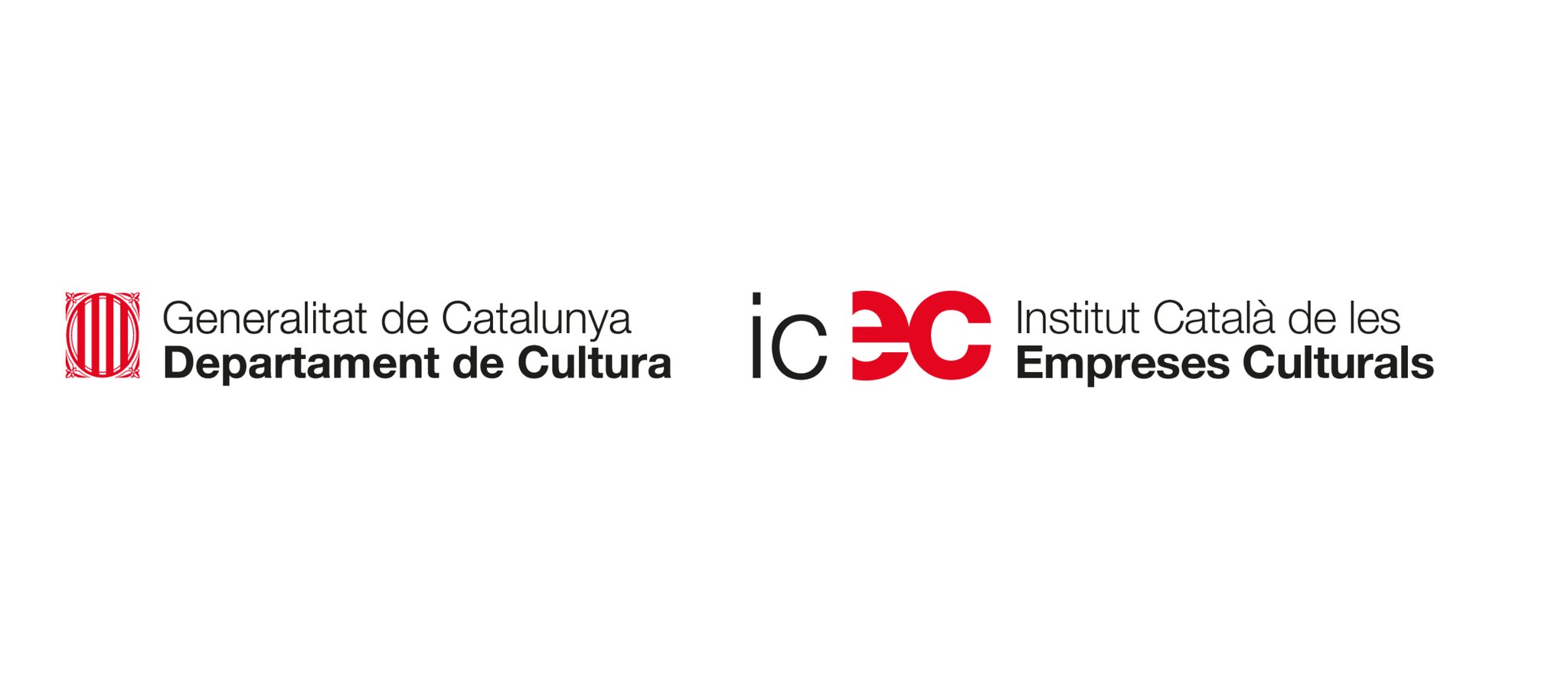
Paris Photo 2022
For this year’ s edition of Paris Photo RocioSantaCruz dedicates part of its stand to pay tribute to the labor and mobilization of women in Spain, during two important periods of its recent history: the Spanish Civil War and the years following Franco’s dictatorship. Two unique historical periods in the history of the country, in which the photographs on display converge to not only vindicate the role of working women, activists or those on the margins of the hegemonic society of the time, but also to illustrate their impact inscribed in the present.
To this end, we present a selection of unpublished photographs, in silver gelatin and bromoleum, by Antoni Campañà (Arbúcies, 1906 -Sant Cugat del Vallès, 1989), with which the author captures the important mobilization of women, which took place at the outbreak of the War during the summer of 1936. The figure of the militia women, who wanted to participate in armed combat in defence of the Republic, was, at first, a symbol of courage and heroism that was used to illustrate numerous posters and covers of Republican magazines. And this is evidenced by Campañà’s photographs, from which no one could suspect that, months later, in the autumn of 1936, the Republican Government would decree the prohibition of their presence in the militias because of distrust of the spread of venereal diseases among the troops. In the thousands of photographs taken by Campañà of the Spanish Civil War, which were discovered in 2018, this series demonstrates not only the vast artistic quality and historical relevance of these photographs, but also operates as a testimony to the role that women played, and still play, during armed conflicts.
We complete our tribute to the work and visibility of women in Spain during the years following the Franco dictatorship with a selection of photographs by Colita (Barcelona, 1940), the leading representative of feminist protest photography in Spain, and co-author of Antifémina, a photobook published by the author in 1977, with texts by writer Maria Aurèlia Capmany, and withdrawn from bookstores shortly after its release, due to her political commitment to the anti-Franco struggle and marked positions in the incipient feminist movement of her time.
At the same time, we present an exclusive selection of photographs by Pilar Aymerich (Barcelona, 1943), a key figure in the feminist and cultural awakening of late Francoism and the Transition, winner of the National Photography Award 2021. The selected images illustrate a historic moment in Spain, as many were taken during the first feminist demonstration in Barcelona after the death of the dictator, and capture the moment in which the women’s prison of the Trinity of Barcelona replaced the nuns “Evangelical Crusaders of Christ the King” by State officials. In this way, it was possible to improve the living conditions of the inmates and also to obtain amnesty for crimes that discriminated against women, such as adultery, abortion or abandonment of the family.
As an interface with contemporary photographic production and, as an axis of research on the construction of social and historical memory in Spain from the voluntary oblivion of the Civil War, we present the series Flowers for Franco (2019) by Toni Amengual (Mallorca, 1980). A set of photographs taken between 2011 and 2015 in the Valley of the Fallen, a mausoleum used by the hegemonic narrative to privilege stability and consensus over reparation and criticism, which invites us to reflect on how the politics of memory is not only played in the dimensions of the narrative, but, fundamentally, in the realm of the visible. Flowers for Franco, derives from the homonymous photobook, published in 2019, selected by Time magazine as one of the best photobooks of the year and whose title pays homage to the poem, Flowers for Hitler, by Leonard Cohen.
On the other hand, we continue our labor of disseminating the outstanding work of Palmira Puig (Lleida, 1912-Barcelona, 1979) and Marcel Giró (Badalona, 1912 – Barcelona, 2011), creators who fled the Civil War and became members of the Foto Cine Clube Bandeirante in Brazil, together with the photographer Germán Lorca (São Paulo, 1922 – Ibidem, 2021).
Three artists who knew how to capture a modern spirit that focused on formal experimentation to which they applied a lively interest in everyday gestures. Such was the quality of their work that their photographs were recently included in the exhibition “Fotoclubismo: Brazilian Modernist Photography and the Foto-Cine Clube Bandeirante, 1946–1964” organized by the MOMA in New York, from May to September 2021.
Finally, in consideration of Ouka Leele (Madrid 1957 – Ibidem, 2022), we exhibit a selection of her most relevant photographs to honor her unique and multifaceted work. An innovative artist who understood photography as surreal poetry, coloring the Movida madrileña, thanks to her handling of watercolor. Her work was exhibited at the Rencontres d’Arles in 1987, 1995 and in 2019, when she designed the poster for that year”s edition, taking part in the exhibition “La Movida. Chronicle of an upheaval 1978-1988”, being in turn nominated for the Madame Figaro photography award of the same year.
Download dossier:
+Antoni Campañà – Selection Spanish Civil War
+Antoni Campañà – Selection 1930s
+Colita
+Pilar Aymerich
+Toni Amengual
+Marcel Giró
+Palmira Puig-Giró
+Ouka Leele
Activity supported by

